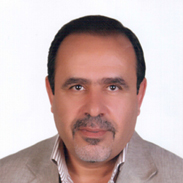Articles > > What Can We Whisper to the Houthis, Hamas, and Muscat?
Articles - AQC - Date: 2025-04-21
No one will blame Ansar Allah (the Houthis) if they decide to halt their operations across the Red Sea and within Israeli territory. They have fulfilled their share of “support,” in a manner deeply appreciated by the Palestinian people, Arab nations, and all free and honorable people around the world. They engaged in direct confrontation with Israel, enduring attacks from the Anglo-Saxon alliance for over a year. For more than a month now, they have been facing the full brunt of American firepower—aircraft carriers, auxiliary ships, Tomahawk missiles, and bunker-busting bombs.
After eight gruelling years of internal war, Yemen no longer possesses anything of its already limited capabilities and its dilapidated infrastructure. The brutal American campaign in Yemen is beginning to mirror the Israeli assault on Gaza, increasingly targeting civilian facilities and infrastructure. Yet, Yemen’s rugged terrain—its mountains, valleys, and natural caves—has enabled its people to resist and hold their ground against some of the most advanced weapons in the U.S. conventional arsenal. The situation, however, is growing more complex and perilous by the day.
Two factors must be taken into account:
First, while the support fronts have made sacrifices and inflicted losses on Israel, they have failed to halt the war on Gaza—the very objective for which these fronts were opened.
Second, Ansar Allah (the Houthis) now stand alone in sustaining the support effort. Other fronts have fallen silent, and the war in and on Gaza has devolved into a senseless massacre of innocent civilians—men and women—without images of close-quarters combat, at least since the end of the last ceasefire and the resumption of Israeli attacks in recent weeks.
Moreover, the key stakeholders in Gaza are exerting tremendous efforts to broker a ceasefire, lift the siege, and secure prisoner exchanges. Meanwhile, Iran—the erstwhile leader of the so-called “Axis of Resistance”—is engaged in “constructive and positive” negotiations aimed at reaching an agreement with Washington. As for Hezbollah’s front, it remains largely quiet, aside from ongoing Israeli violations.
These statements may not sit well with some Palestinians, Lebanese, and Arab supporters of Gaza’s heroic resistance. But dear friends, wisdom—long associated with Yemen—demands that we not leave Yemen isolated in facing the might of a rogue administration, one that acts without deterrent or restraint, and whose erratic leader behaves like a bull in a china shop.
To some Lebanese supporters of the resistance axis: do not make the task of the Yemenis harder by overstating their capacity to hold out and defeat the world’s most powerful state. Comparisons to past wars, where colonial invasions faltered on Yemen’s rugged terrain, no longer apply. Stop promoting “surprises” allegedly being prepared by Ansar Allah for the American (tripartite) aggression on Yemen. Even if such surprises exist, they are unlikely to alter the course of the conflict or bring Trump to his knees.
To some Palestinians—particularly Hamas and Islamic Jihad—I say: it is time to speak to Ansar Allah and, more specifically, to Sayyed Abdul-Malik al-Houthi. Urge him publicly to act in Yemen’s best interest and to navigate it away from the precipice of a new and possibly more devastating war. The coming days may hold surprises, but from the opposing side. Hamas must initiate discreet contacts with Ansar Allah to help end the inferno raining down on Yemen. Only then should they go public with an appeal, calling on Ansar Allah to de-escalate, seek calm, and relieve themselves of any embarrassment or sense of abandonment.
Yemen has never abandoned Palestine. It succeeded in shutting down the Port of Eilat—something that powerful Arab states could not achieve in previous wars. This courageous Yemen has not raised the white flag and will not do so, despite the enormity of the challenge and the severity of the threat. The U.S. campaign has not broken Yemen’s will; instead, it has sparked serious questions—even within American circles—about its feasibility and purpose. All of this is true and must be recognized and recorded.
But it is also true that the war on Yemen is snowballing, growing more intense by the day. Intelligence estimates suggest that what currently prevents the assassination of Sayyed al-Houthi is the lack of reliable intelligence on his whereabouts and movements. The belief is that the decision to eliminate him has already been made, and execution awaits only better intelligence. The lesson from Lebanon and Hezbollah has been internalized: the absence of Sayyed Hassan Nasrallah created a leadership void in the party, in Lebanon, and across the axis—one that no one has yet filled and likely won’t in the foreseeable future. While the loss of field commanders can be overcome, some leaders are simply irreplaceable. Hezbollah will suffer for years due to the absence of its charismatic leader, just as Iran—the state and the revolution—has struggled to fill the void left by General Qassem Soleimani. The United States seems to want to replicate this experience in Yemen, recognizing the critical role Sayyed Abdul-Malik al-Houthi plays.
There is also a scenario circulating in operations rooms—somewhat reminiscent of, though not identical to, the Syrian regime change effort. Southern forces of various ideologies and loyalties are preparing for a “grand march” on Hudaydah and eventually Sana’a, under American-British-Israeli air and naval cover. What we once believed was the final chapter of Yemen’s decade-long war may actually mark the beginning of a new, prolonged phase of conflict.
Ansar Allah need not fear their domestic rivals or the remnants of their former Arab backers. But a coordinated military effort by local actors, backed by naval and air support from the tripartite aggressors, could shift the balance. This could mark a turning point—perhaps even a decisive one. If today’s open fronts are not quietened, we may be looking at another eight years of war. Wars usually end in one of two ways: when one party achieves a decisive victory, or when all parties conclude that battlefield victory is no longer attainable. Houthi adversaries know full well his prowess in ground warfare. But if they sense weakness, and if his removal appears feasible, they may be strongly tempted to return to the trenches and the guns.
Linking the Yemeni case to the U.S.–Iran nuclear negotiations is misguided. It is not the right gateway to address this question. In any case, Tehran has so far refused to discuss its regional role or future alliances with Washington. I believe the U.S. is promoting this linkage to turn Yemen into a “test case” for what Iran might face should diplomacy fail.
Muscat, which hosts and mediates U.S. bilateral negotiations, remains the most suitable venue and actor to manage the Yemeni case and the war upon the country. The Omani leadership enjoys good relations with all Yemeni factions and is trusted by Ansar Allah. It also maintains communication with both Tehran and Washington on more critical issues. Oman could leverage this position to relay messages, promote de-escalation, and eventually secure ceasefires—ultimately aiming to end the war entirely, without making that conditional on a U.S.–Iran agreement or a ceasefire in Gaza.
This is a sincere appeal, born of concern for Yemen and its people. The hope is that it will be taken seriously—without posturing or bidding wars. Remaining silent about the actions and tactics of some Arab and regional actors during this time of “support,” under the pretext that “no voice should rise above the voice of battle,” has led to devastation. We must recognize and seize the chance to correct course.




